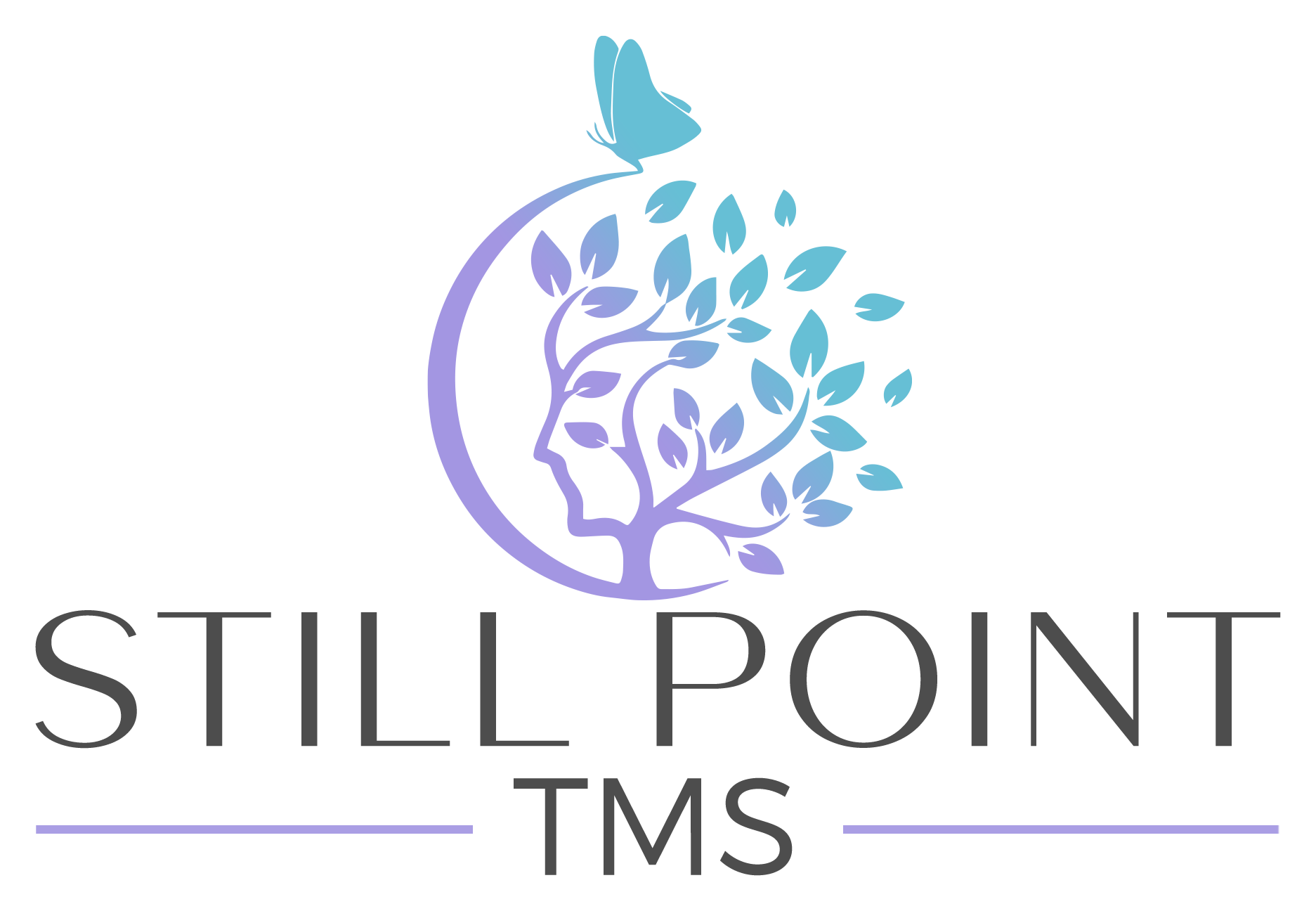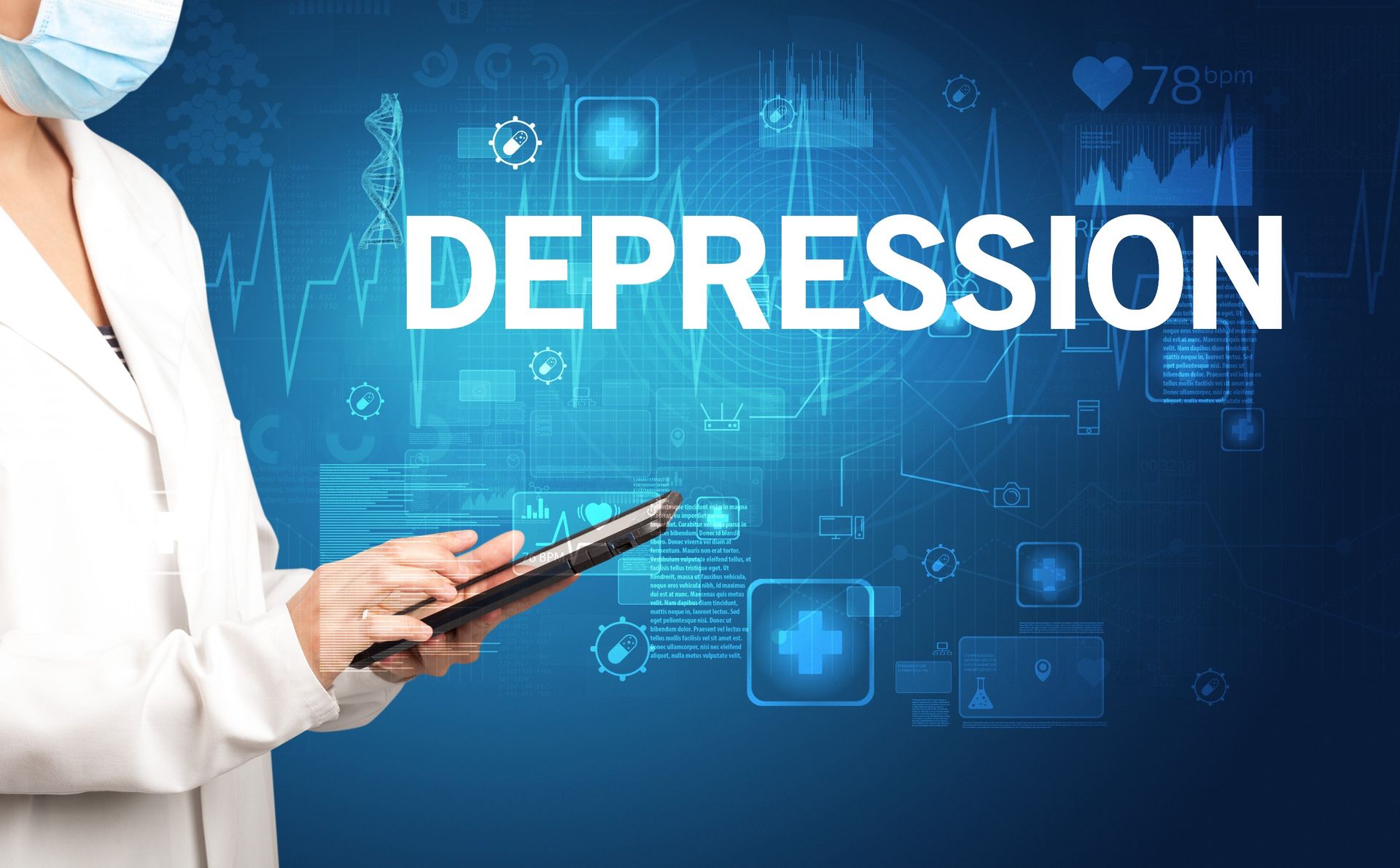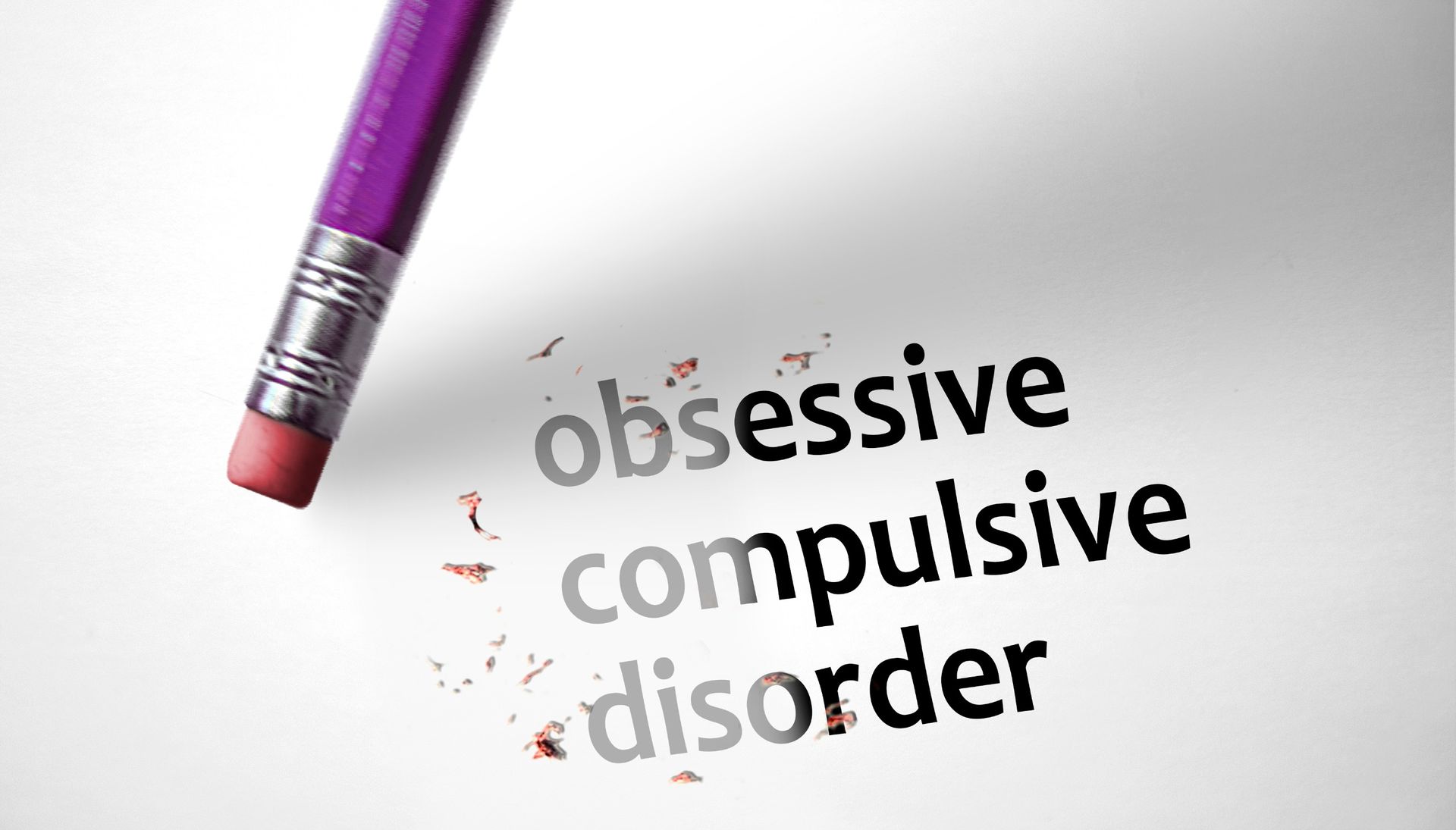103 Pennsylvania S, Charleston, WV 25302
103 Pennsylvania S, Charleston, WV 25302
What You Need to Know About TMS Therapy For Depression
Michelle Bez • Feb 18, 2024
In this digital age where innovation is the norm, some breakthroughs quietly revolutionize a sector, offering new hope to those who have long suffered in the shadows of medical limitations.
Nudging its way into the spotlight, Transcranial Magnetic Stimulation (TMS) therapy holds this promise in the realm of mental health, potentially marking the beginning of a new era for individuals battling with severe depression.
This non-invasive, non-pharmacological treatment has garnered considerable attention for its groundbreaking potential.
This blog post delves into what TMS is, how it works, and why it's becoming a game-changer for psychiatric care. Here's everything you need to know about this innovative approach to mental health.
Understanding TMS: A Mind-Blowing Innovation
Transcranial Magnetic Stimulation, often abbreviated as TMS, is a relatively new form of medical treatment that uses magnetic fields to stimulate nerve cells in the brain.
Initially developed in the mid-1980s as a tool for neuroscience research, TMS has now expanded into therapies for a variety of neurological and psychiatric disorders, with a primary focus on major depression.
The Science of TMS: Nudging Neurons to Alleviate Depression
TMS operates on the principle of electromagnetic induction, where a changing magnetic field produces an electric current within the brain.
This electric current, in turn, can stimulate or inhibit neurons, leading to changes in brain activity. In the context of depression, TMS is administered to targeted areas of the prefrontal cortex, which is known to be underactive in those suffering from the condition.
By modulating the neural activity in this region, TMS aims to reset brain circuitry, potentially offering relief to the individual.
The process begins with the patient comfortably seated, alert, and awake. A technician places an electromagnetic coil against the patient's scalp near the forehead.
When the device is turned on, rapid pulses of a magnetic field pass through the scalp and skull, inducing small electric currents in the brain tissue. These repetitive magnetic pulses can lead to the release of neurotransmitters associated with mood regulation, such as serotonin, dopamine, and norepinephrine.
TMS in Practice: Who Can Benefit and How
Despite its high-tech image, TMS therapy is straightforward from a patient's perspective. Typically, a full course of TMS treatment involves numerous sessions over several weeks. While the number of sessions can vary based on the individual's response, the treatment process is generally as follows:
The TMS Patient Experience: A Day at the Clinic
Patients arrive at the TMS clinic and undergo a gentle mapping process where the technician identifies the precise area of the brain to target. The treatment itself is painless. It’s common for patients to feel a tapping sensation on their forehead and may hear a clicking noise. Sessions last about 20 to 40 minutes, and individuals are awake and alert during the entire process.
The frequency of these sessions, which can range from daily to bi-weekly, depends on the type and severity of the patient's depression. As the treatment progresses, they should communicate openly with their provider, who may adjust the parameters to optimize the response.
The Impact of TMS on Mental Health: Case Studies and Results
TMS has shown significant promise in clinical trials for treatment-resistant depression, a severe subtype of depression that doesn't respond to traditional pharmacotherapy.
Recent studies demonstrate that TMS can lead to substantial improvements in mood and quality of life, with some patients experiencing a remission of their depressive symptoms.
Real-world examples highlight the transformative potential of TMS. Individuals who have undergone the therapy report feeling as if a "fog has lifted," often showcasing renewed energy and engagement with life. For many, these changes represent a much-awaited breakthrough in their mental health journey.
The Safety and Side Effects of TMS: What to Expect
As with any medical intervention, TMS has associated risks and benefits that should be carefully considered. Fortunately, the safety profile of TMS is favorable, particularly compared to the side effects associated with many medications used to treat depression.
Common Side Effects During and After TMS Sessions
The most common side effect of TMS is mild-to-moderate scalp discomfort or headaches, typically alleviated with over-the-counter pain relievers. Other side effects can include lightheadedness during the session and muscle contractions in the face.
The beauty of TMS lies in its non-systemic nature. Unlike pharmaceutical treatments, TMS does not involve the administration of drugs, which means patients do not experience the side effects of systemic medication.
This aspect lends TMS an added advantage, making it an attractive option for individuals who have experienced intolerable side effects with traditional antidepressants.
TMS and Long-term Well-being: Is the Relief Permanent?
Many patients wonder about the permanence of the relief TMS provides. While individual responses vary, the positive effects of TMS have been observed to endure beyond the immediate treatment period. For some, the remission is sustained, while others may require additional "maintenance" TMS sessions over time to manage their depression effectively.
The lasting impact of TMS is a growing topic of research. Longer-term studies are needed to better understand the therapy's durability, but the initial evidence is promising. The potential for TMS to deliver long-lasting positive outcomes positions it as a critical tool in the ongoing management of depression.
TMS: Integration into the Mental Health Landscape
The integration of TMS into standard psychiatric care marks an evolution in the way we approach mental health treatment. As the mental health community continues to embrace this innovative therapy, questions arise about TMS's accessibility and scalability.
Accessibility of TMS Therapy: Overcoming Barriers to Entry
One of the primary challenges currently facing TMS treatment is its accessibility. At present, TMS is more readily available in urban centers and certain well-resourced healthcare systems. Efforts to expand access are ongoing, with a focus on training more clinicians and integrating TMS into community mental health centers.
Cost is another significant consideration. While some insurance plans cover TMS for certain conditions, out-of-pocket expenses can be prohibitive for many patients. Addressing these economic barriers is crucial to ensure that TMS reaches the broad population that stands to benefit from it.
Beyond Depression: Other Areas Where TMS Is Making an Impact
While depression remains the leading area of application for TMS therapy, its utility is not limited to this domain. TMS is also being investigated and employed in the treatment of various other conditions, showcasing its versatility.
Emerging Frontiers: TMS for Cognitive Enhancement and Neurorehabilitation
Research into TMS for cognitive enhancement and Alzheimer's disease is particularly intriguing. By stimulating specific brain regions associated with memory and cognition, TMS holds the promise of delaying cognitive decline in conditions like Alzheimer's.
Similarly, TMS is being explored in the context of neurorehabilitation, with some studies suggesting it could aid recovery from stroke and other neurological injuries.
The potential of TMS as a neurorehabilitative tool is a captivating area of inquiry within the medical community. The idea that magnetic pulses could aid in the rewiring and repair of damaged neural pathways opens up new vistas for the fields of neurology and rehabilitation medicine.
Preparing for TMS: Important Considerations for Those Seeking Treatment
Choosing to pursue TMS therapy is a significant decision, one that requires careful preparation and consideration. Understanding the process and preparing mentally can improve the overall experience and outcomes for patients.
The Role of Patient Education and Expectation Management
Educating patients about what to expect from TMS is a crucial aspect of the pre-treatment process.
Realistic expectations can prevent disappointment and support better engagement with the therapy. Providers should be transparent about the treatment process, potential outcomes, and any preparatory steps patients need to take.
Preparing mentally for TMS involves embarking on this journey with an open mind. As with any medical intervention, the psychological readiness to engage with the treatment can influence its efficacy.
Patients should view TMS as a collaborative effort between themselves and their healthcare team focused on achieving improved mental health.
The Future of TMS: Innovation and Progress
As we look to the future, the potential applications of TMS continue to expand, driven by ongoing research and technological advancements. The integration of TMS with other therapeutic modalities, the refinement of treatment protocols, and the development of more precise equipment are all areas of active innovation.
Research Frontiers: TMS and Personalized Psychiatry
The emerging field of personalized psychiatry holds particular promise for TMS. Genetic markers, brain imaging, and other diagnostic tools may one day guide the use of TMS in a tailored, individualized manner.
By customizing treatment approaches to a person's unique neurobiological profile, the field of psychiatric medicine could see even greater leaps in outcomes and patient satisfaction.
Conclusion: TMS as a Beacon of Hope in Mental Healthcare
TMS therapy stands out as a beacon of hope, illuminating the path forward in mental healthcare. For individuals considering TMS or simply curious about its potential, this therapy represents not just a treatment option, but a symbol of progress.
It embodies the idea that, with innovation and dedication, we can break free from the constraints of traditional medicine and open new doors to healing.
As TMS continues to gain recognition and become more widely available, its impact on mental health could be nothing short of revolutionary.
About Still Point TMS
Are you struggling with OCD or other mental health disorders such as depression and in Charleston West Virginia don’t know what to do? If yes, you have come to the right place! At Still Point TMS we are here to help you overcome OCD with TMS therapy.
Our mental health professionals will help you every step of the way on your mental fitness journey by creating a treatment plan.
We understand that it is a challenging situation but you have already taken the first step by being here. Don’t wait any longer,
request a free consultation today! You can reach us at
304-915-0084 to learn more or schedule your appointment.

Schedule a Consultation
Local to Charleston West Virginia and need help with depression? Contact Still Point TMS today!
Call Now: 304-915-0084

TMS Therapy Can Help People With
- Depression
- Lack of Joy
- Sadness and Despair
- Low Mood
- Lethargy
- Insomnia
- Oversleeping
- Social Isolation
- Self-Harm
- Substance Abuse
- Suicidal Ideation
- Alcoholism


Ready to Get Started?
Holistic Anxiety Disorder Treatment & Mental Health Services in Charleston, WV
Our commitment is to enhance the mental health of our community and we pledge to support you in your journey by providing a customized treatment plan to help you overcome your struggles and achieve a fulfilling life. At Still Point TMS, our mental health clinic in Charleston West Virginia, we utilize TMS therapy, an exceptional and innovative method to combat treatment-resistant depression. We're dedicated to helping you find the mental well-being you deserve. It’s time.
Or Call: 304-756-5715 for Bez Psychiatric
🙌 Bez Psychiatric Is Now Part of Still Point TMS Therapy 🎉
Navigation
Contact
Or Call: 304-756-5715 for Bez Psychiatric
304-346-9927
MON – FRI: 9am-4pm
SAT – SUN: Closed
103 Pennsylvania S, Charleston, WV 25302







